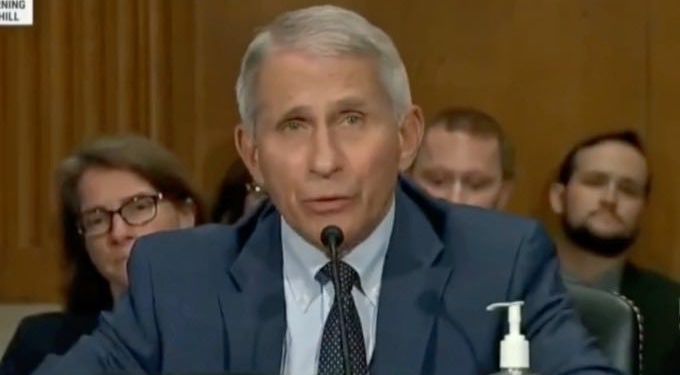
Source: The WinePress
“Because these viruses generally do not elicit complete and durable protective immunity by themselves, they have not to date been effectively controlled by licensed or experimental vaccines.”
After three years of habitually urging the public to get a Covid-19 vaccine, to not only protect ourselves but others around us from contracting and spreading Covid, that the vaccines were the only way to “stop the spread,” and after nearly 80% of the American population has received at least one dose, and 68% got two, and 33% with three injections – Dr. Anthony Fauci and his constituents are now saying that both old and new vaccines are not effective in generating immunity against viral diseases like Covid or the flu.
Fauci, along with Dr. David M. Morens, Senior Advisor to the Director at National Institute of Allergy and Infectious Diseases (NIAID), and Jeffery K. Taubenberger, M.D., Ph.D., a Senior Investigator for Viral Pathogenesis & Evolution Section at NIAID – recently published a paper in the journal Cell, that discusses vaccines and their effectiveness against ailments like Covid, influenza, RSV, and the common cold.
The paper is called “Rethinking next-generation vaccines for coronaviruses, influenzaviruses, and other respiratory viruses.”
In the opening summary, the doctors wrote:
“Because these viruses generally do not elicit complete and durable protective immunity by themselves, they have not to date been effectively controlled by licensed or experimental vaccines.
In this review, we examine challenges that have impeded development of effective mucosal respiratory vaccines, emphasizing that all of these viruses replicate extremely rapidly in the surface epithelium and are quickly transmitted to other hosts, within a narrow window of time before adaptive immune responses are fully marshaled.
We discuss possible approaches to developing next-generation vaccines against these viruses, in consideration of several variables such as vaccine antigen configuration, dose and adjuventation, route and timing of vaccination, vaccine boosting, adjunctive therapies, and options for public health vaccination polices.”
In the early introduction of the paper, the authors admit that long before Covid fears were on the scene the flu was the dominant annual threat, but had “less than suboptimal vaccines” available to the public to prevent infection.
The authors followed that with this admission:
“Over the years, influenza vaccines have never been able to elicit durable protective immunity against seasonal influenza virus strains, even against non-drifted strains.
Although current influenza vaccines reduce the risk of severe disease, hospitalization, and death to some degree, their effectiveness against clinically apparent infection is decidedly suboptimal, ranging from 14% to 60% over the past 15 influenza seasons.”
















